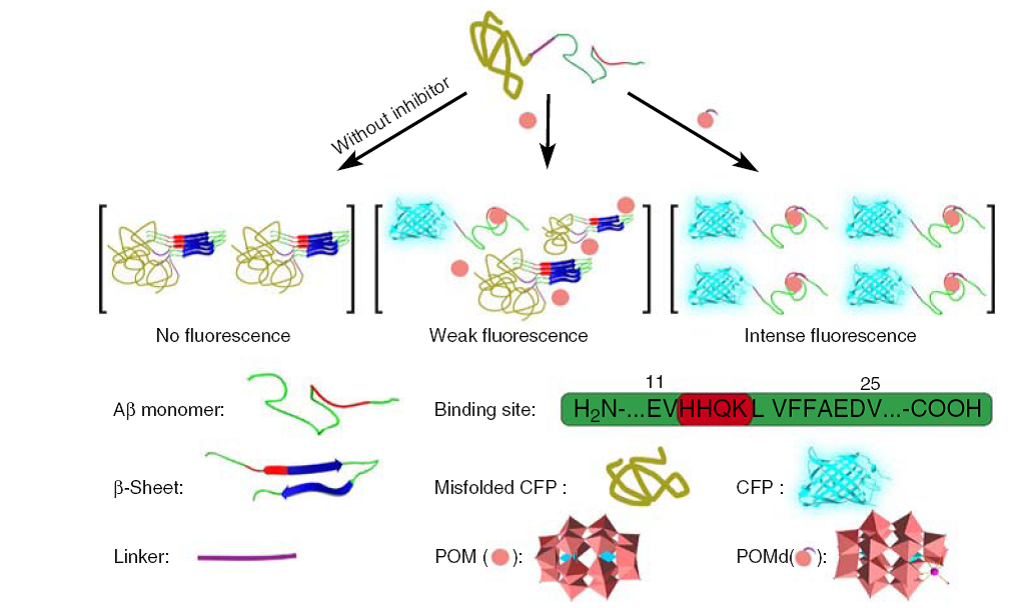曲晓刚课题组高楠副研究员文章被 Nat. Commun.接收,文章发表在 Nat. Commun. DOI: 10.1038/ncomms4422 上。
Inhibitions of amyloid b (Ab) aggregation and Ab-haem peroxidase-like activity have received much attention because these two symptoms can be the primary targets of therapeutic strategies for Alzheimer’s disease (AD). Recently, our group found that polyoxometalate (POM) with a Wells–Dawson structure can efficiently inhibit Ab aggregation. However, the interaction between POMs and Ab is robust, but still needs to improve Ab binding affinity. More importantly, it is unclear whether POMs can cross the blood–brain barrier and decrease Ab-haem peroxidase-like activity. Here we show that our designed series of transition metal-functionalized POM derivatives with a defined histidine-chelated binding site have much better Ab inhibition and peroxidase-like activity inhibition effects than the parent POM. More intriguingly, we show that these compounds can cross the blood–brain barrier and are metabolized after 48 h. Our work provides insights into the design, synthesis and screening of inorganic metal compounds as multifunctional therapeutic agents against AD.


